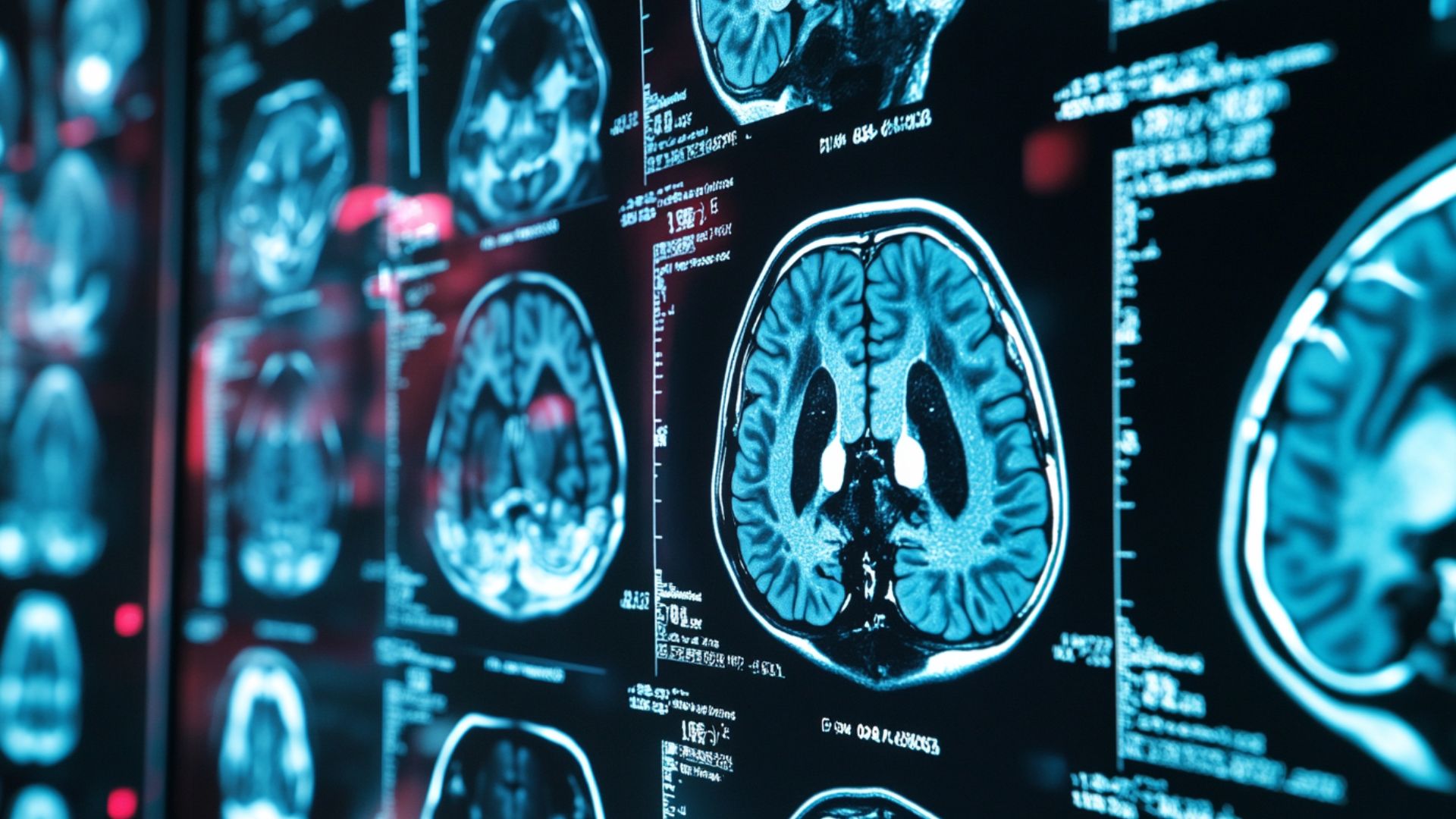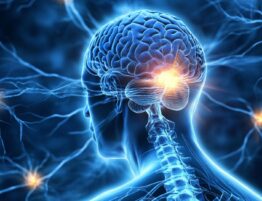Neurological conditions significantly impact millions of patients worldwide. Modern technologies are fundamentally transforming how we approach brain care and treatment. These rapid developments help doctors track breakthrough discoveries and achieve better patient outcomes. Both hospitals and patients benefit from new diagnostic services that detect diseases earlier than ever before.
Digital tools are revolutionizing every stage of neurological treatment. Early intervention is now possible through advanced neurology innovations. Essential diagnostic tools and artificial intelligence help doctors identify patient needs with greater precision.
This integration has become standard practice, from continuous patient monitoring to targeted brain stimulation. Doctors can now detect early-stage diseases that were previously undetectable. Artificial intelligence completely transforms research approaches and data analysis capabilities. Advanced imaging allows doctors to detect previously invisible brain abnormalities. In hospitals, improved automation is changing clinical workflows entirely. AI has enabled the exploration of various brain research breakthroughs in areas of brain research. Patients can receive faster diagnoses and begin treatment without lengthy delays.
Brain Research Breakthroughs: From Lab Discoveries to Real-World Patient Impact
Research breakthroughs help us understand the complex mechanisms of the human brain. Innovative technologies give doctors deeper insights into brain function and dysfunction. Biomarker detection and advanced imaging support the development of more precise diagnostic tools. Doctors can better combat neurodegenerative diseases like Alzheimer’s disease or Parkinson’s disease. These brain research breakthroughs are shaping new approaches to modern medicine, leading to improved service delivery.
Brain research advances continue reaching new levels of diagnostic and treatment precision. Here are the key areas enhancing brain health studies:
- Biomarkers. Biomarker identification is essential for detecting many neurological diseases. These biological indicators help identify diseases before symptoms appear. Doctors can begin treatment immediately before the patient’s condition deteriorates.
- Advanced Imaging. Next-generation MRI technology offers enhanced functionality and scanning capabilities. Advanced MRI systems utilize innovative scanning methods to produce sharper images for more precise disease detection.
- Gene and Cell Therapy. These therapeutic approaches effectively address genetic defects related to neurological diseases. Gene and cell therapy can correct specific biological problems at their source.
- Clinical Research. Breakthrough research improves clinical studies and medical practice. Doctors can better test new treatments and evaluate their effectiveness. This creates the foundation for improved research leading to personalized treatment options.
- Innovation Impact. Medical innovations significantly improve research outcomes and patient care. These advances enable the effective and affordable detection of diseases for broader patient populations.
Neurotechnology Advancements in Clinics: Smarter Tools for Safer, Wider Access
Many people seek help for neurodegenerative diseases and neurological disorders. Advanced neurotechnology is improving clinical practice and healthcare delivery methods. These neurotechnology advancements are taking medicine to safer, more accessible levels. Doctors can expand treatment access and provide personalized care for more patients.
Here are key examples of clinical neurotechnology:
- Real-time Brain Monitoring. Specialized devices monitor brain activity continuously in real-time. Doctors can track brain function and detect symptoms as they develop.
- Brain-Computer Interfaces. These systems create direct communication between computers and the human brain. Doctors can help restore lost functions using computer-generated data and feedback.
- Deep Brain Stimulation. This treatment effectively addresses Parkinson’s disease, chronic headaches, and other conditions. Advanced neurotechnology reduces symptoms and significantly improves patients’ quality of life.
- Remote Patient Monitoring. Doctors can remotely monitor patient conditions using specialized tools. This technology helps track chronic conditions and prevent medical emergencies.
The main neurotechnology advancements include improved accessibility and enhanced patient safety. Doctors combine modern solutions aimed at faster recovery and better outcomes. Clinical practice demonstrates reduced risks through less invasive and more personalized treatment approaches.
AI in Neurology: Transforming Diagnostics, Prediction, and Everyday Care
Artificial intelligence is widely implemented across many healthcare sectors. In neurology, AI technologies are essential for enhancing diagnostic accuracy and efficiency. Automation enhances large-scale data analysis while reducing routine administrative work. Doctors can achieve higher prediction accuracy and detect diseases at earlier stages.
AI in neurology provides advanced technology for continuous image analysis and interpretation. AI systems can quickly detect various pathologies, significantly speeding up treatment processes.
Predictive models are essential tools in modern neurology practice. Doctors can predict disease development at very early stages. This capability enables the determination of optimal treatment approaches more quickly. Medical teams can stay ahead of disease progression using advanced analytical methods.
AI optimizes clinical processes, reducing the time spent on routine tasks. AI systems analyze patient data and recommend appropriate treatments based on evidence. Medical teams can tailor care delivery to meet patient expectations and needs.
Continuous monitoring and control enable medical professionals to interact effectively with AI in neurology. Data quality management and ethical compliance enhance the reliability of these processes. For neurology, automation is indispensable for doctors and greatly enhances clinical capabilities. Work is performed with maximum efficiency while minimizing diagnostic errors.
Neurology Innovations for Patients: Faster, Personalized, and More Accessible Care
Neurology innovations are essential for providing professional emergency and routine care. Teams of qualified professionals create supportive environments for all patients. Patients receive timely care through improved methods and increased accessibility. Rapid treatment adapted to individual patient needs is now standard practice.
Medical innovations help create fair and convenient conditions for a better quality of life. Here are key opportunities that innovations provide:
- Early Disease Detection. Any neurological disease can be diagnosed quickly in its early stages — artificial intelligence and biomarkers facilitate the detection of diseases, resulting in more effective treatment outcomes.
- Personalized Treatment Plans. Technologies provide customized treatment through comprehensive diagnostic approaches. Gene and cell therapy consider each patient’s unique characteristics and medical history.
- Ethical Implementation. Neurology innovations are implemented with maximum responsibility and oversight. Automation implementation must adhere to ethical standards and prioritize patient safety at all times. This approach guarantees patient protection and optimal health outcomes.
- Continuous Professional Development. Ongoing participation in research studies helps improve therapeutic methods. Doctors maintain awareness and continuously enhance their clinical skills. Creating safe and equitable environments helps patients achieve a better quality of life.
The Future of Neuroscience: Trends That Will Transform Your Health Journey
The future of neuroscience holds promise for revolutionary treatments that extend far beyond current capabilities. New opportunities for personalized and advanced treatment are opening for patients worldwide. The integration of modern equipment with artificial intelligence enables large-scale implementation. Doctors will achieve success in identifying diseases even before symptoms appear.
The future combines technology with human expertise in truly indispensable ways. Artificial intelligence will complement and enhance doctors’ care-providing processes.
The future of neuroscience will incorporate hyperautomation to accelerate various clinical processes. This advancement enables the achievement of maximum development in patient-critical clinical workflows. Technologies can even assess patient emotional states to optimize treatment approaches. System sensitivity is crucial for doctors to provide appropriate, personalized care.
Multimodal interfaces help connect movement, text, and voice communication systems. These processes help monitor human health and support initiatives aimed at improving treatment. Reaching the next technological level provides excellent opportunities for optimal treatment environments.
Gene technology development will drive future advances in neuroscience. Doctors will treat previously untreatable disorders from the moment of recognition. Educational platforms and programs help patients stay informed about their conditions. Patients can actively participate in treatment and properly monitor their health progress.
The future of neuroscience represents a combination of human expertise and technology that is properly integrated. Modern approaches are shaping new medical standards for improved and personalized treatment.
Book a Forward-Looking Consultation: Your Personalized Roadmap to Advanced Neurological Care
Neurotechnology advancements build patients’ trust in modern treatment methods. Patients can choose from various specialized consultation options to improve their health outcomes. This approach helps build strong doctor-patient relationships and ensures that patients receive the necessary care and attention they need. Professional medical teams guarantee success through proper treatment strategies.
Using new methods and technologies helps achieve success in early treatment stages. Here are the main consultation phases:
- Initial Assessment. The doctor conducts preliminary evaluations and collects a comprehensive patient history. Patients can discuss their symptoms and receive improved diagnostic results from studies.
- AI-Assisted Planning. AI in neurology enables the creation of individualized treatment plans based on patient data. Doctors determine treatment goals according to each patient’s specific needs. The process is personalized and inclusive for every individual.
- Clear Treatment Plans. Patients receive detailed treatment plans with measurable interim results. Patients remain involved in treatment for continuous control and security.
Main advantages include constant transparency, treatment plan oversight, and flexible program options. Adaptable programs prioritize patient safety and peace of mind while ensuring compliance with all relevant regulations.
Patients also gain access to various specialized clinics and highly qualified medical experts. These specialists employ cutting-edge approaches and continually refine treatment pathways.












I've given up... the stress her office staff has put me through is just not worth it. You can do so much better, please clean house, either change out your office staff, or find a way for them to be more efficient please. You have to do something. This is not how you want to run your practice. It leaves a very bad impression on your business.
Please, leave your review
Write a comment: